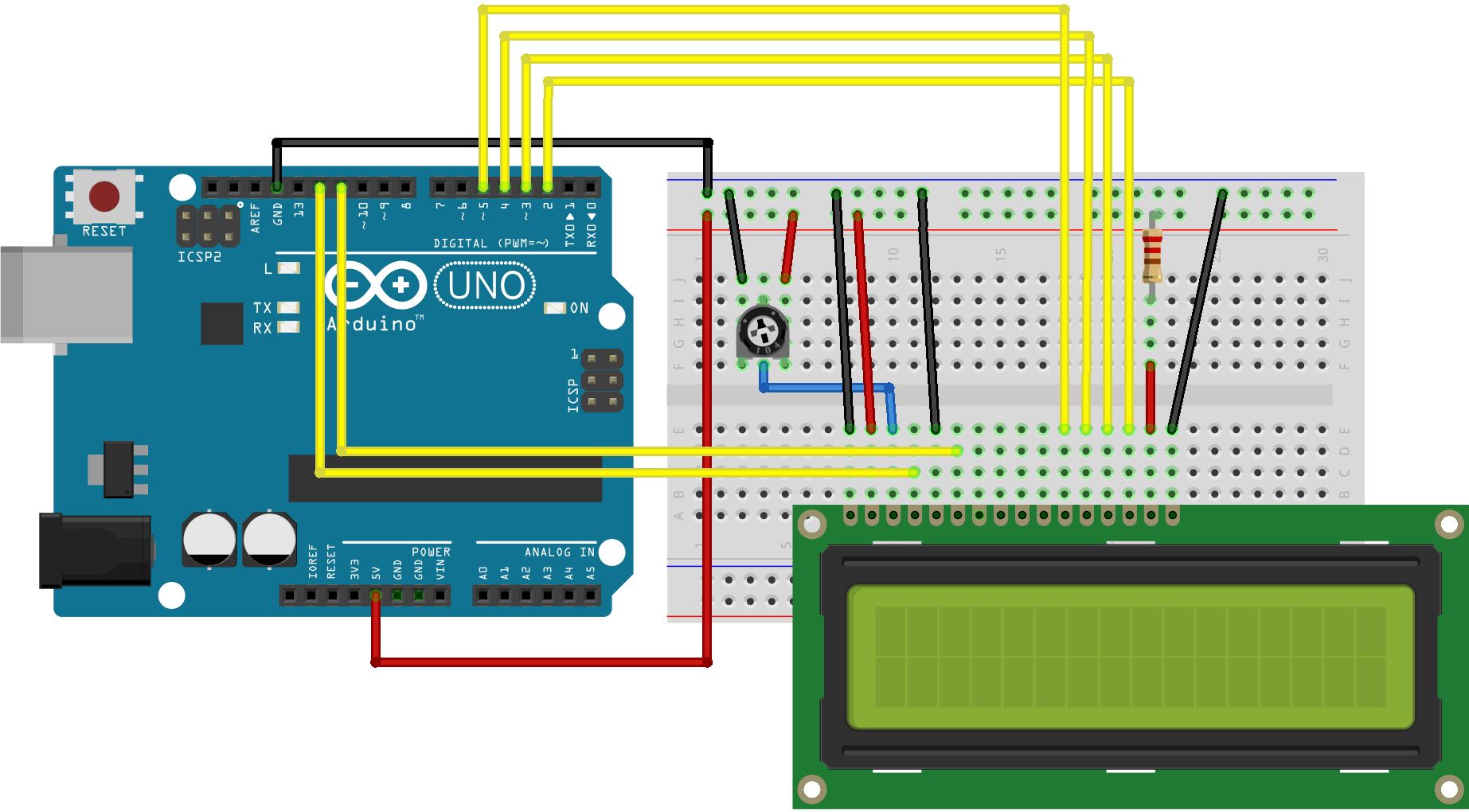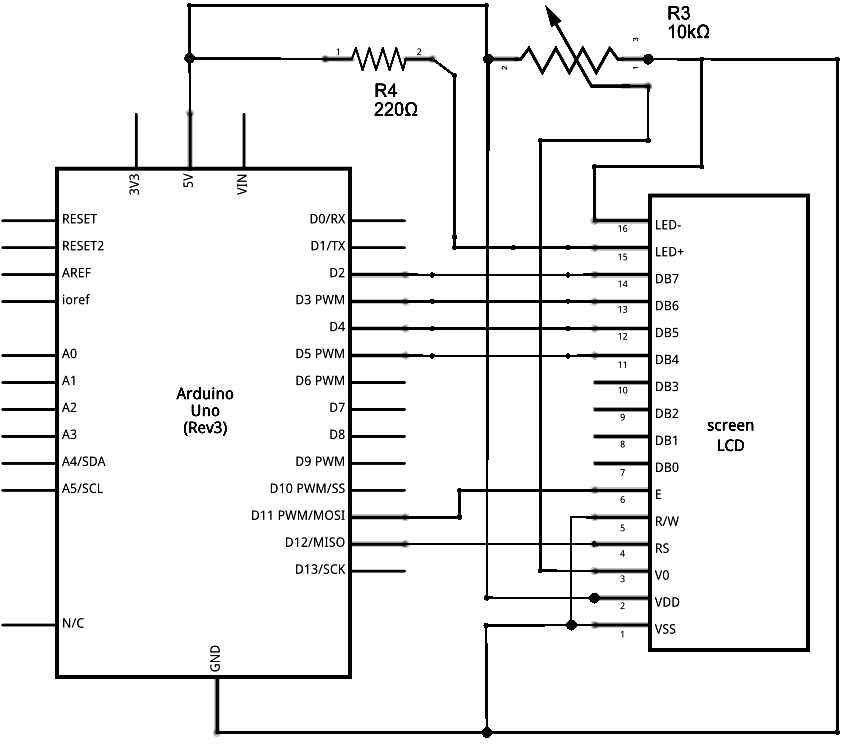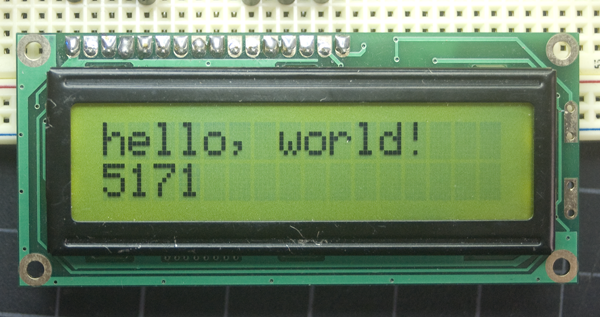Introduction
Proyek ini diambil dari tutorial yang terdapat di halaman resmi arduino cc. Arduino sendiri sudah memiliki library untuk LCD yaitu LiquidCrystal. Dengan library kita dapat mengontrol tampilan dari LCD yang memiliki 16-pin interface.Library membantu kita menyederhanakan proses kontrol sehingga kita tidak perlu mengetahui seperti apa instruksi pada low-level-nya. LCD dapat dikontrol dengan dua mode: 4-bit atau 8-bit. Mode 4-bit membutuhkan tujuh pin I/O dari arduino sedangkan mode 8-bit membutuhkan 11 pin. Untuk menampilkan teks pada screen LCD, kita dapat memanfaatkan mode 4-bit.
What We will Need
- Arduino atau Genuino Board
- LCD 2x16
- 10k ohm potensiometer
- 220 ohm resistor
- breadboard
- kabel jumper secukupnya
Build the Circuit
Pin-pin yang harus dipasang adalah sebagai berikut:- Pin RS ke pin 12
- pin E ke pin 11
- pin D4 ke pin 5
- pin D5 ke pin 4
- pin D6 ke pin 3
- pin D7 ke pin 2


Start Coding
1: /*
2: LiquidCrystal Library - Hello World
3:
4: Demonstrates the use a 16x2 LCD display. The LiquidCrystal
5: library works with all LCD displays that are compatible with the
6: Hitachi HD44780 driver. There are many of them out there, and you
7: can usually tell them by the 16-pin interface.
8:
9: This sketch prints "Hello World!" to the LCD
10: and shows the time.
11:
12: The circuit:
13: * LCD RS pin to digital pin 12
14: * LCD Enable pin to digital pin 11
15: * LCD D4 pin to digital pin 5
16: * LCD D5 pin to digital pin 4
17: * LCD D6 pin to digital pin 3
18: * LCD D7 pin to digital pin 2
19: * LCD R/W pin to ground
20: * LCD VSS pin to ground
21: * LCD VCC pin to 5V
22: * 10K resistor:
23: * ends to +5V and ground
24: * wiper to LCD VO pin (pin 3)
25:
26: Library originally added 18 Apr 2008
27: by David A. Mellis
28: library modified 5 Jul 2009
29: by Limor Fried (http://www.ladyada.net)
30: example added 9 Jul 2009
31: by Tom Igoe
32: modified 22 Nov 2010
33: by Tom Igoe
34:
35: This example code is in the public domain.
36:
37: http://www.arduino.cc/en/Tutorial/LiquidCrystal
38: */
39:
40: // include the library code:
41: #include <LiquidCrystal.h>
42:
43: // initialize the library with the numbers of the interface pins
44: LiquidCrystal lcd(12, 11, 5, 4, 3, 2);
45:
46: void setup() {
47: // set up the LCD's number of columns and rows:
48: lcd.begin(16, 2);
49: // Print a message to the LCD.
50: lcd.print("hello, world!");
51: }
52:
53: void loop() {
54: // set the cursor to column 0, line 1
55: // (note: line 1 is the second row, since counting begins with 0):
56: lcd.setCursor(0, 1);
57: // print the number of seconds since reset:
58: lcd.print(millis() / 1000);
59: } The Result

No comments :
Post a Comment